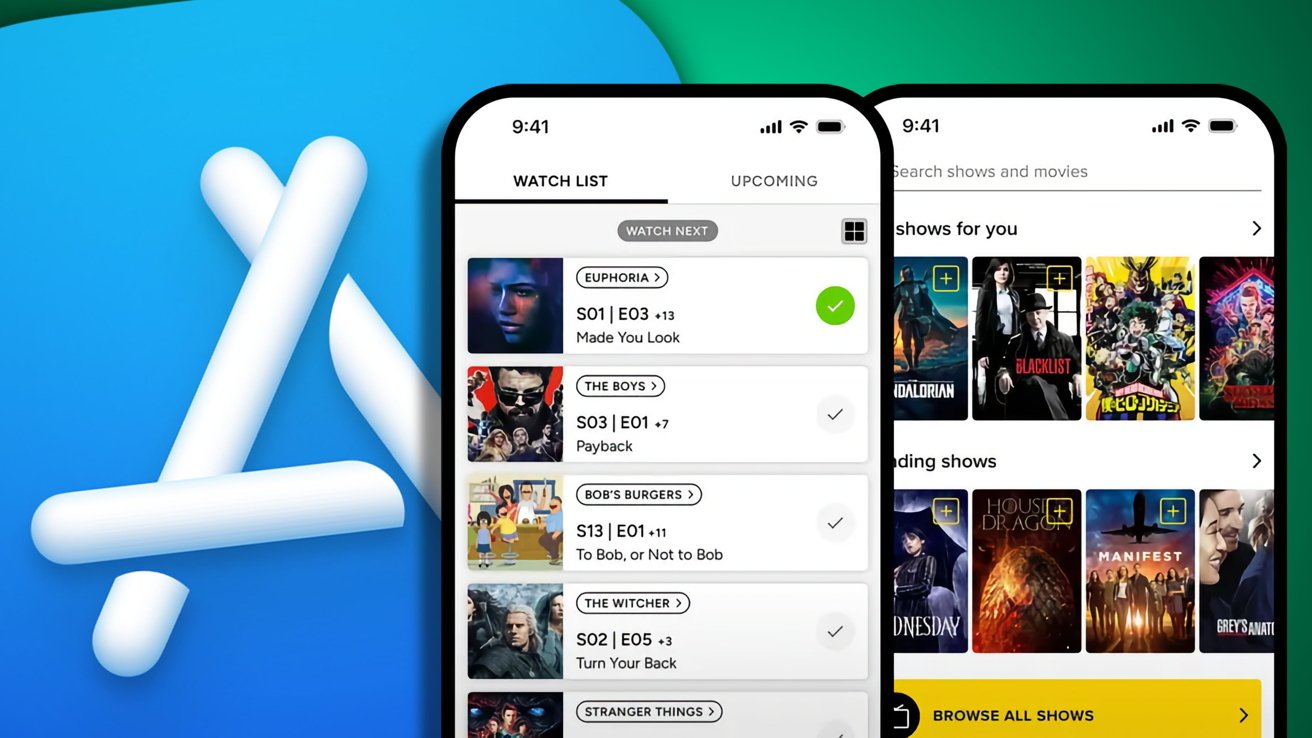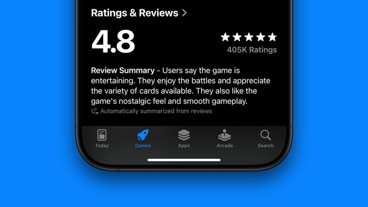Developers of two media-centric apps say Apple is not playing fair with the App Store, especially when it comes to dealing with copyright law.
As the controller of the App Store, Apple has a duty to keep the digital marketplace full of engaging apps that don't break or infringe laws. However, the amount of control Apple has over apps, and its ability to kick apps over claims of copyright infringement, has irked some developers.
According to TV Time and Musi, Apple is seemingly too eager to wield the banhammer.
TV Time's user-generated trouble
On November 1, TV Time revealed on X that it was aware its app had stopped appearing on the App Store. At the time, it added it was working with Apple to bring it back to the store.
In a follow up on Wednesday, TechCrunch intervened, and Apple reinstated the App Store listing for TV Time. It turned out that the app was pulled for copyright infringement, but not from purposefully doing so.
TV Time allows users to track their TV show viewing, including sending them to streaming apps to watch their desired content. However, the app also allowed users to post images and animated GIFs of their favorite shows to built-in communities.
TV Time owner Whip Media's chief marketing officer Jerry Inman explained that it was caused by a mishandled intellectual property complaint, which the app routinely deals with. After users had uploaded TV and film cover art to the app, a company then claimed there was copyright infringement and issued a Digital Millennium Copyright Act notice.
The app responded asking for proof of ownership, which they allege wasn't provided, but it did remove the images anyway. The complaining company also demanded a financial settlement, which isn't consistent with the DMCA, and Whip Media declined to pay it.
The complainant then notified Apple that the claim was "unresolved," Inman says, which then led to Apple taking the app down.
While Whip Media and the complaining company have since resolved the issue, the TV Time owner has concern that Apple has too much control.
"Apple holds significant power over app developers by controlling access to a massive market and, in this case, seems to have acted on a complaint without requiring robust evidence from the complainant," said Inman.
Musi's copyright limbo
In September, Musi was taken down from the App Store, in another copyright complaint case.
A music streaming app, Musi didn't directly stream music from its own servers, but instead relied on YouTube. Users would be piped music hosted on YouTube servers, which meant Musi was able to avoid paying song licenses.
Following multiple complaints, including some from YouTube itself, the app was pulled from the App Store.
On Tuesday, Ars Technica reported that users of Musi were keen to keep hold of the app. If the app was offloaded in an update or the user got a new phone, they wouldn't be able to redownload the app again.
Some users found that the app was offloaded after an update, with no option to download it again. Others have since decided to avoid updating their devices so they can keep hold of their app.
Complicating the matter is that Musi sued Apple in October, to try and force it to reinstate the app in the App Store. The intention was to keep the app active while copyright complaints were dealt with by the developer.
Musi believes Apple acted improperly, breaching its contract with the app removal before investigating the claims made by YouTube.
However, the legal action may mean Musi will be in courtroom limbo for quite some time. A hearing on an injunction to reinstate Musi won't happen until January at least, and it could lead to even more of a delay before it is reinstated, if the court agrees.
While held up, Musi is concerned that it will be losing revenue from not being made available to download. In a filing opposing the injunction on Friday, Apple says that the fans who have the app installed are still able to stream and use the service, so a lack of a listing won't kill the app entirely.
Apple is also concerned that the granting of the injunction could make Apple more liable for dealing with copyright violations. It insists that, while trying to stay neutral and not take sides, it shouldn't be expected for Apple to use resources to investigate every single copyright notice it receives.
"The public interest in the preservation of intellectual property rights weighs heavily against the injunction sought here," the opposition filing states, "which would force Apple to distribute an app over the repeated and consistent objections of non-parties who allege their rights are infringed by the app."
A very long-term problem
As a very large company operating one of the biggest digital storefronts in the world, Apple has a lot of pressure. It naturally becomes a big target when there's a complaint that someone thinks it should solve on its behalf.
Part of the problem is the sheer number of complaints it receives over App Store content. It has to deal with thousands of complaints and demands over apps in the App Store, produced by third parties rather than its in-house team.
For it to fully investigate each complaint to determine whether or not it is valid, Apple would have to use a lot of its resources. For a task where it doesn't stand to benefit from putting the effort in, an investigation isn't worth the time to the company unless it's facing a severe financial threat. So, Apple leaves litigation to the developer and claimant.
This is why you see so many references in the App Store Review Guidelines that an app could be removed from the App Store for various reasons. In these cases in particular, it would be under point 5.2, Intellectual Property, which seeks for apps to secure licenses for content they use.
Apple has a public website for submitting complaints about copyright infringement. The page has a statement that Apple will put the claimant and app owner in contact to resolve a dispute, but if a dispute isn't resolved or one party doesn't respond, the app is removed.
If you believe that an App or Search Ad available through the App Store violates your intellectual property rights, you can submit your claim here. Please note that Apple does not investigate claims regarding branded terms used as Search Ads keywords. In most cases, content available through the App Store is made available by third party providers and, upon receiving your submission, we will contact the provider of the disputed content regarding your claim and ask that they work with you directly to resolve the issue."
In many cases, it's probably justifiable for Apple to boot the app, especially in extremely obvious instances of copyright infringement. However, an increasing number of developers believe that copyright claims are being handled poorly and that Apple's power to kick apps is too much.
Updated November 20, 11:13 p.m. EST: Added a link and details about Apple's copyright claim website
 Malcolm Owen
Malcolm Owen








 Andrew O'Hara
Andrew O'Hara

 William Gallagher
William Gallagher

 Christine McKee
Christine McKee

 Marko Zivkovic
Marko Zivkovic





-m.jpg)


There are no Comments Here, Yet
Be "First!" to Reply on Our Forums ->